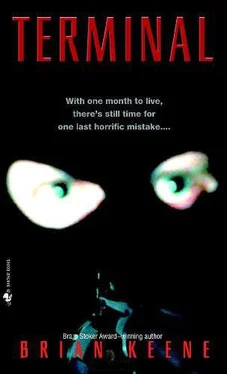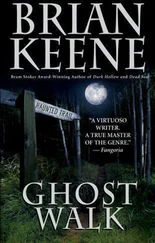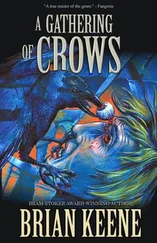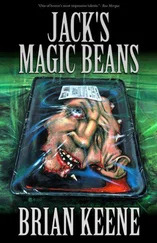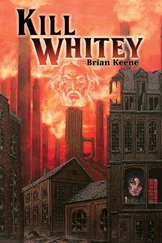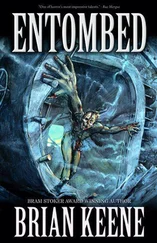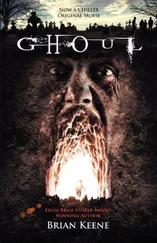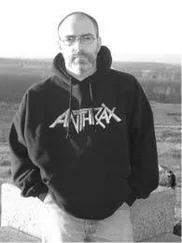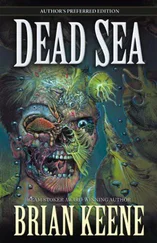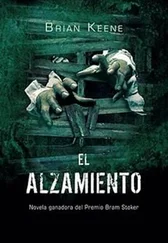For Geoff Cooper, Michael T. Huyck Jr., and Michael Oliveri.
We are ka-tet. All for one and one for all…
To many men life is a failure
A poison worm gnawing at their heart
Then let them see to it
That their dying is all the more a success
—FRIEDRICH NIETZSCHE,
Thus Spake Zarathustra
Rejoice, young man, in thy youth
But know that God will bring thee
Into judgment
—ECCLESIASTES 11:9
“I’m going to kill the bastard!”
—BABY FACE NELSON TO JOHN DILLINGER
“Forget it and grab the money!”
—JOHN DILLINGER TO BABY FACE NELSON
Farewell happy fields
Where joy forever dwells
Hail horrors, hail…
—JOHN MILTON,
Paradise Lost
Thanks to Cassandra; Sam, who came along at just the right time; Anne Groell for the French Sushi; Josh Pasternak; Rich SanFilippo, for the bat and the murder ballads; Ed Gorman; Larry Roberts; Alan M. Clark; Duane Swierczynski, my partner in crime; Cullen Bunn; Judi Rohrig; Officer Tom O’Brien (no relation to the main character); Maria Cotto, for the swearing lessons; Carl, for help with the drugs; Matt Warner (drop and give me 1,000); Gina Mitchell; Mark Lancaster, for once again being my eyes and ears; Adam Pepper, who read this on the back of scrap paper; John Urbancik, for reading this during the carnival instead of going to Heaven by answering three easy questions; and finally, to the memory of the foundry sage Robert Fitro, whose wisdom is not forgotten.
Author’s Note: Though Hanover, York, and many of the locations in this novel are real, I have taken fictional liberties with them. If you live there, don’t look for your bank. You probably won’t find it.
Life’s a bitch, then you die. That’s my philosophy in a nutshell, and it was reinforced that morning.
“Mr. O’Brien, perhaps you’d better sit down.”
That didn’t sound good. Neither did the fact that we were doing this in his office, instead of the examination room.
I shrugged. “It’s okay. I can stand.”
A fancy degree in an expensive-looking frame hung on the wall. I focused on it, wondering how much it cost him to go to medical school. How much money did he make? I bet it was more than I made working at the foundry.
He cleared his throat, glanced down at the desk, and looked back up at me.
“Mr. O’Brien—”
Here it comes. My cholesterol is too high. I need to quit smoking and drinking and eating rare steaks and baked potatoes with a shitload of butter and sour cream or I’ll be dead before I’m thirty.
“—you have cancer.”
I said nothing. I couldn’t say anything, even if I’d known what to say. There was a big lump in my throat, and it grew as he continued. My ears felt hot and began to ring. Something moved around deep down inside my stomach, a sloshing that made me queasy and afraid at the same time. The doctor seemed to shrink and swell in front of my eyes, and his voice echoed around the office. Everything started to spin and my head grew light, like I’d stood up too quick or something.
“I’ve conferred with several associates of mine, all of who specialize in this. The diagnosis is certain. The cancer is spreading throughout your throat, particularly the esophagus, as well as your jaw, chest, and lungs. It’s gotten into your lymph nodes. Those are the lumps beneath your armpits. Worse, the disease is spreading at an alarming rate. It’s what we term Grade Four—extremely serious and very, very aggressive.”
I stared at him, then decided to sit down after all. If I hadn’t, I think I would have collapsed. My legs felt like spaghetti. Outside, I heard the clackety-clack-clack as the receptionist banged away on her keyboard. The keys seemed very loud in the silence.
“Cancer. Well shit.”
“Yes.”
“That ain’t good.”
“No.”
He folded his hands, sighed, and waited for me to speak.
I was having trouble doing that. Fear kicked in, thrumming in my gut like a subwoofer.
“So—am I going to have to get one of those holes in my neck? You know, those tracheotomy things? A voice box like that guy Ned on South Park?”
“Mr. O’Brien. Tommy. I know this is a shock, but I need to make sure that you understand.”
He removed his glasses, rubbed his forehead, and sighed again. Then he put the glasses back on, folded his hands neatly on the desk, and looked at me. I knew that look. It was a look that said I’m not fucking around here.
“Your cancer is at a very advanced stage. At this point, chemotherapy and treatment on the throat lesions would be ineffective, as would removal of the tumors and steroid therapy. Truthfully, I’d be hesitant even to do an exploratory on the growths at this point. As I said, a Grade Four tumor is very aggressive, and you have multiples. Literally dozens, in fact. To be honest, I’ve never seen so many in a patient before. I’m afraid the outlook is terminal. I am truly, truly sorry, Tommy. You have my deepest regrets. Had we caught it earlier—” He shrugged and found something to look at on his blotter.
“Shit,” I said again. “Terminal. Huh.” It felt like somebody had hit me in the stomach. After a few moments, the doctor stirred.
“I don’t understand, Tommy. Why didn’t you come in earlier, at the first sign?”
“I don’t have any health insurance, Doc. The foundry keeps us below thirty-five hours a week so they don’t have to pay for it. State law, you know? And my wife only works part-time at the Minit-Mart over on Eisenhower and Carlisle Street. She doesn’t have any insurance either.”
The doctor nodded and fell silent again.
“Can’t you cut them out? The tumors?”
“It would be futile, Tommy. The success rate is very low and the surgery is quite invasive. The cancer has spread rather quickly, expanding into the rest of your body. Your esophagus is—not good. The tumors in your jaw have sent tendrils into your brain, like roots, if that helps you to understand it better. That’s where the headaches are coming from. Several of the growths have fused with your spine. There is simply no way that we could remove them all, and even if we did, you’d be horribly disfigured. We would literally have to remove your jaw and your nose. There are prosthetics for that, of course, but they are very costly.” He stared back down at the blotter, fiddling with a pen.
There was more, but I didn’t hear it. The doctor showed me pamphlets that I pretended to understand. Even though he already knew the answers, he asked again if I smoked (I did), drank (only a few days during the week, Friday night after work, and on the weekends), used drugs (once in a while, but only weed), worked near radiation (nope, just foundry dirt and molten iron), family history (my mother had breast cancer), or had a father who was exposed to Agent Orange in Vietnam (my father was in ’Nam but came back as an alcoholic). He nodded as I confirmed each one.
The doctor offered me some medication to make the nausea and pain easier, wrote a prescription for something (but I wasn’t paying attention and didn’t really understand what it was for), and asked me to come back in a couple days so we could discuss arrangements.
“What kind of arrangements? What’s there to discuss?”
He explained the difference between a hospital stay and a hospice, and told me that I’d have to make some tough decisions. He’d be there to help me with them.
“Is that appointment going to cost money? ’Cause I don’t get paid again for another two weeks.”
Читать дальше
